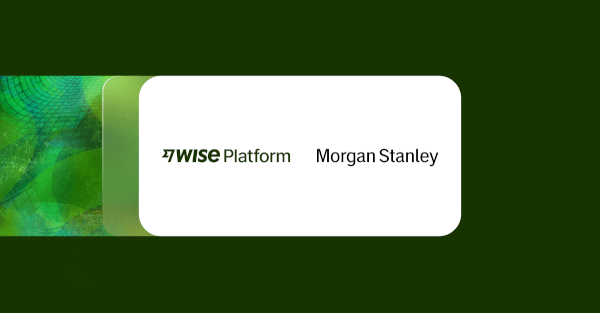Benefits of a Business Bank Account
Discover the benefits of setting up a separated business bank account to manage your business finances separated from your personal ones.

Self-employed or independent contractors, make money by contracting with a trade or business directly. Independent contractors can work in a variety of roles, such as consultants, agents, or brokers, interior design, event organizer, tutoring, and freelancer. Others might be creative professionals or technical/IT types.
Generally, you are self-employed if any of the following apply to you.
Being self employed has a lot of pros and cons but if you figured it’s worth the risk, you must be wondering where to start and that’s what we’re going to discuss in this article.
We’ll also introduce a modern and cost effective way of getting paid as an independent contractor using Wise multi-currency account.
There are several good reasons for being self- employed, and it doesn’t only end at having a sustainable source of income but a flexible work schedule and other exciting perks and benefits. However, this means giving up some of the laid back-life of being an employee. Here are the pros and cons you should consider:
Control over all business aspects. You have full control over things such as where the business is located and what hours you work. You also have the power to structure your work environment the way you want it. Since you create the company culture, you can enjoy an environment that fits your preferences.
Increased earning potential. When you're the boss, you have a much higher earning potential. If your skills are in demand your income will be high. Since you have the full control of your business, you can build-up your income and make your business more profitable. Aside from that you’ll save costs from parking fees, travel, or even meals.
Flexibility in work. You have full control of your schedule. This means that you get to decide when you work and how much you work. You can work during the time of day when you’re the most productive. If your business is internet- based you also have the flexibility in the location. As long as you have the internet that means you can travel with your family while still keeping your business running.
Sense of pride. Running and growing your own business is often more satisfying than helping other companies grow. It’s often the little step that means. As your company grows you can look back and how you started it makes the sense of pride and fulfillment.
Use of your skills. Creating a business that suits your skills is likely to boom. You tend to put your passion and expertise in everything you do that eventually leads to success.
No More Rush Hours. You can set your own schedule without triplicating your alarm just to be in a meeting. No need to be stuck in a long traffic wasting time. Not to mention the stress and anxiety you endure when the traffic doesn’t move. No more rush hours also means saving gas.
The biggest benefit of being self-employed is that you will be your own boss.
Employee benefits. This includes paid sick leave, holidays, maternity/paternity leave. When you’re self employed, you’d have to arrange this yourself.
Income. Generally, you’ll get paid more as a self employed. However, a constant stream of income is not guaranteed.
Tax. One of the biggest challenges of being self employed is filing and reporting tax. As self employed, you’re required to keep track of all your taxable income and report it to HMRC.
Mortgage application. Applying for a mortgage can be quite challenging if you’re self employed. You’d need to have a steady income for at least 3 years in order to get approved.
Being self-employed can be categorized as self-employed and trading via a limited company, partnership, as a sole trader, or through an umbrella company. To succeed on your craft, this step-by-step guide will help you achieve your goals.
1. Create Your Business Plan
Everything must start with a plan. Before you can start finding clients, create a realistic and well-defined business plan.
A. Define your service or product. Think of the things you’re passionate about and start working on that.
B. Define your niche. Once you know what you want to offer, decide who you are offering it.
2. Plan Out Your Finances
It’s best to get your finances online. That way you can save headaches that often come with managing money. If you don’t know how to start you can always ask help from professionals.
3. Set up a business bank account
Having a separate account that is solely for business purposes makes it easier to handle your finances. This also makes it easier to fill out your self assessment tax form prior to submitting to HMRC.
Compare accounts today to find the best business bank account for you.
4. Name, Register, Insure, and Comply with the Government Requirements for your Contracting Business¹
Decide on a business name and register it. Get insurance for your business as required. A claim against your business that is not cCreovered by insurance could be financially disastrous, especially if your business is not incorporated. File appropriate taxes to avoid headaches with the HMRC.
5. Market Your Craft
Word-of-mouth can help you gain clients much more quickly and it’s a free advertisement, in addition to getting feedback about the potential of your business idea. Put together a marketing plan and inexpensive marketing strategies such as social media plan to get to your clients.
6. Build Your Name with Best Practices
You must keep an ideal client that will keep your business in life. To do so, you need to rise above by working with honesty and integrity, treating every client as special, and being professional at all times.
When you're self-employed, you're responsible for filing and paying your own income tax. As imposed by the Office of Tax Simplification (OTS) taxes paid by self-employed individuals depend on how much money you’ve made in running your business. All business related expenses while doing your business can be deducted when calculating for taxable profit.
Self-employed and independent contractors often pay less tax than a regular employee, but they must be aware of IR35² tax legislation.
For self-employed and independent contractors you should pay your taxes³ through HM Revenue and Customs (HMRC);
To work out how much VAT you should be paying, use our VAT calculator.
If you’re offering your services to foreign clients, one of the biggest challenges you’ll face is getting paid. Choosing the right solution that is not only fast and secure but also cost effective is not easy. PayPal can be one of the most traditional methods but it's certainly not the cheapest. Using your local bank can also be as expensive due to international transfer fees, poor exchange rates and receiving fees.
The good news is that there are services like Wise that allow you to receive international payments in EUR, USD, GBP, AUD, NZD and PLN for free. You can also convert and withdraw the collected funds to your local bank account 19x cheaper than PayPal. Other benefits include:
Create your account in minutes
Sources:
*Please see terms of use and product availability for your region or visit Wise fees and pricing for the most up to date pricing and fee information.
This publication is provided for general information purposes and does not constitute legal, tax or other professional advice from Wise Payments Limited or its subsidiaries and its affiliates, and it is not intended as a substitute for obtaining advice from a financial advisor or any other professional.
We make no representations, warranties or guarantees, whether expressed or implied, that the content in the publication is accurate, complete or up to date.

Discover the benefits of setting up a separated business bank account to manage your business finances separated from your personal ones.

Discover the direct debit collection rules in place for UK business to collect payments at ease!

Providing customers with instant, transparent global payments has become crucial for delivering an exceptional customer experience and maintaining a...

Discover if expenses should be paid through payroll, with pros, cons and directions from HRMC.

Discover the best practices when setting up per diem expenses, how to set up rate, proceed with payment and more.

We’re excited to announce that Morgan Stanley, a leading global financial services firm, has teamed up with Wise Platform, Wise’s global payments...